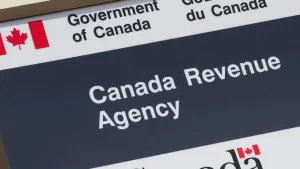Navigating tax returns can be a daunting task for anyone, but for medical residents in Canada, it can be particularly challenging due to the unique financial circumstances they face. In this comprehensive guide, we will delve into the intricacies of tax return filing for medical residents in Canada, providing essential information and tips to help you make the most of your tax return.
Understanding Your Tax Status
As a medical resident in Canada, it’s crucial to understand your tax status. Generally, residents are considered to be residents for tax purposes, even if they are not Canadian citizens. This means you are subject to Canadian tax laws on your worldwide income.
Income Sources for Medical Residents
Stipends and Salaries: Medical residents receive a stipend or salary for their services. These payments are taxable and should be reported as income on your tax return.
Scholarships and Bursaries: Some residents may receive scholarships or bursaries. While not all scholarships are taxable, it’s important to determine if the amount you received should be declared.
Other Income: Medical residents may have additional income sources, such as investments or rental properties. These should also be included in your tax return.
Deductions and Credits
Medical Expenses: Residents often have substantial medical expenses, including prescription medications, dental care, and other health-related costs. Keep receipts and records of these expenses, as they may be deductible.
Student Loan Interest: If you have student loans, you may be eligible to claim the interest paid on these loans as a deduction.
Moving Expenses: If you moved to take up your residency, you may be able to claim eligible moving expenses.
Tuition and Education Credits: If you were a student before becoming a medical resident, you may have unused tuition and education credits that can be applied to reduce your tax liability.
Public Transit Credits: While not as relevant during residency, public transit credits can be valuable for commuting residents.
Important Deadlines: to Tax Return filing for Medical Residents in Canada
It’s crucial to be aware of tax deadlines in Canada. The tax filing deadline for individuals is usually April 30th. However, if you or your spouse or common-law partner are self-employed, you have until June 15th to file, although any taxes owing are still due by April 30th.
Seek Professional Advice
Given the complexities of tax laws, especially for medical residents with specific financial circumstances, seeking professional advice from a qualified accountant or tax advisor is highly recommended. They can provide personalized guidance and ensure you take advantage of all available deductions and credits. Abdullah CPA is a specialist focusing solely on Medical Professionals.
Conclusion
Tax Return Filing for Medical Residents in Canada requires careful consideration of your unique financial situation. By understanding your tax status, identifying all income sources, and leveraging available deductions and credits, you can optimize your tax return and potentially save a substantial amount of money. Remember to keep accurate records, consult a professional if needed, and meet important deadlines to ensure a smooth tax-filing process.






